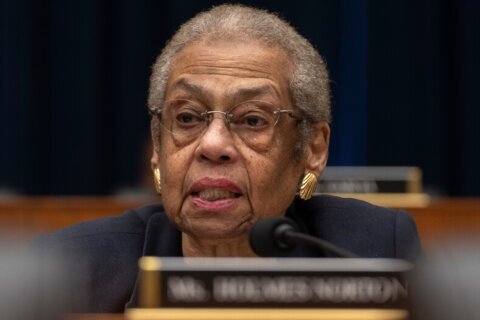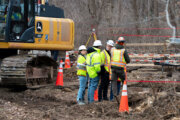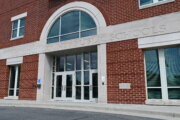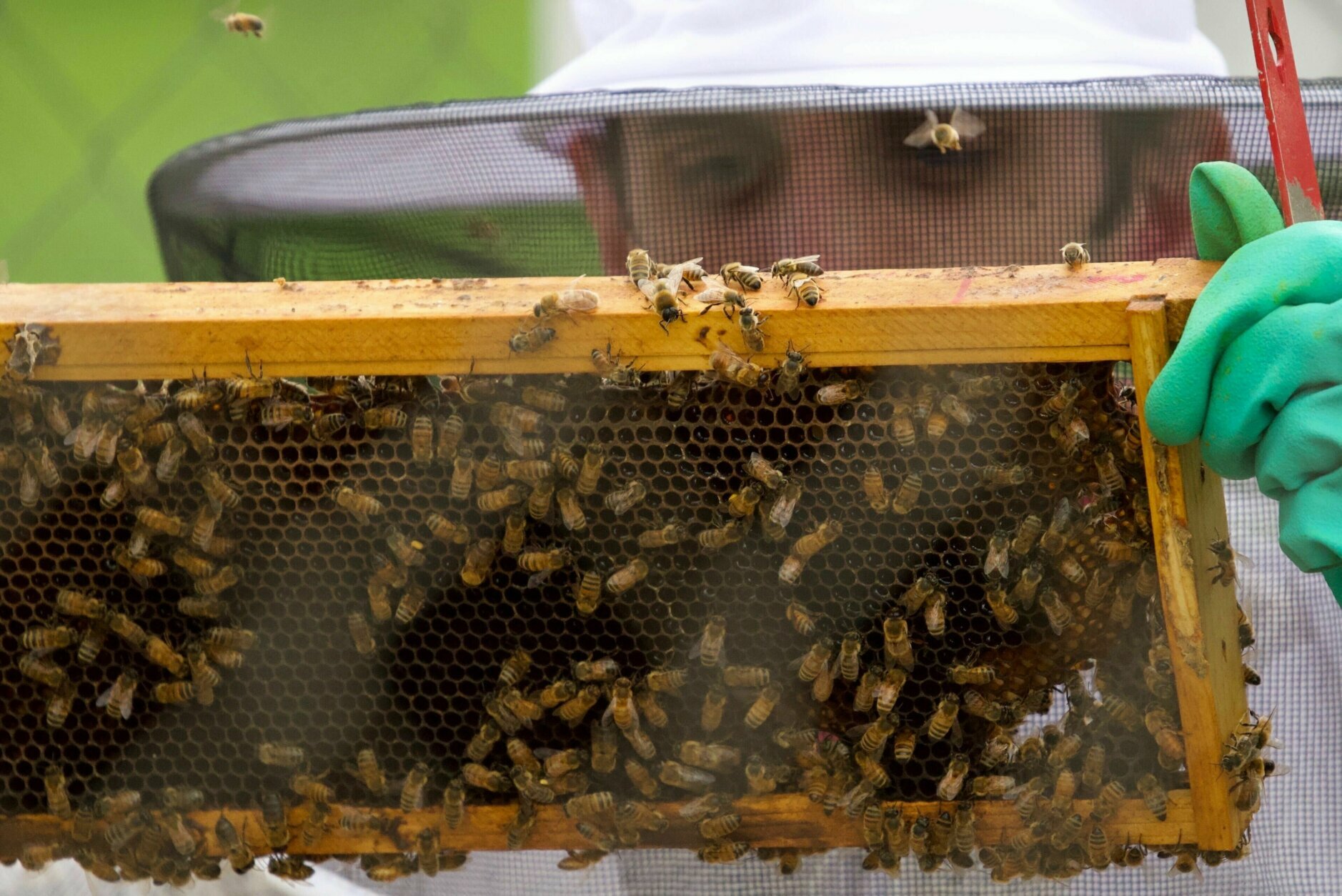
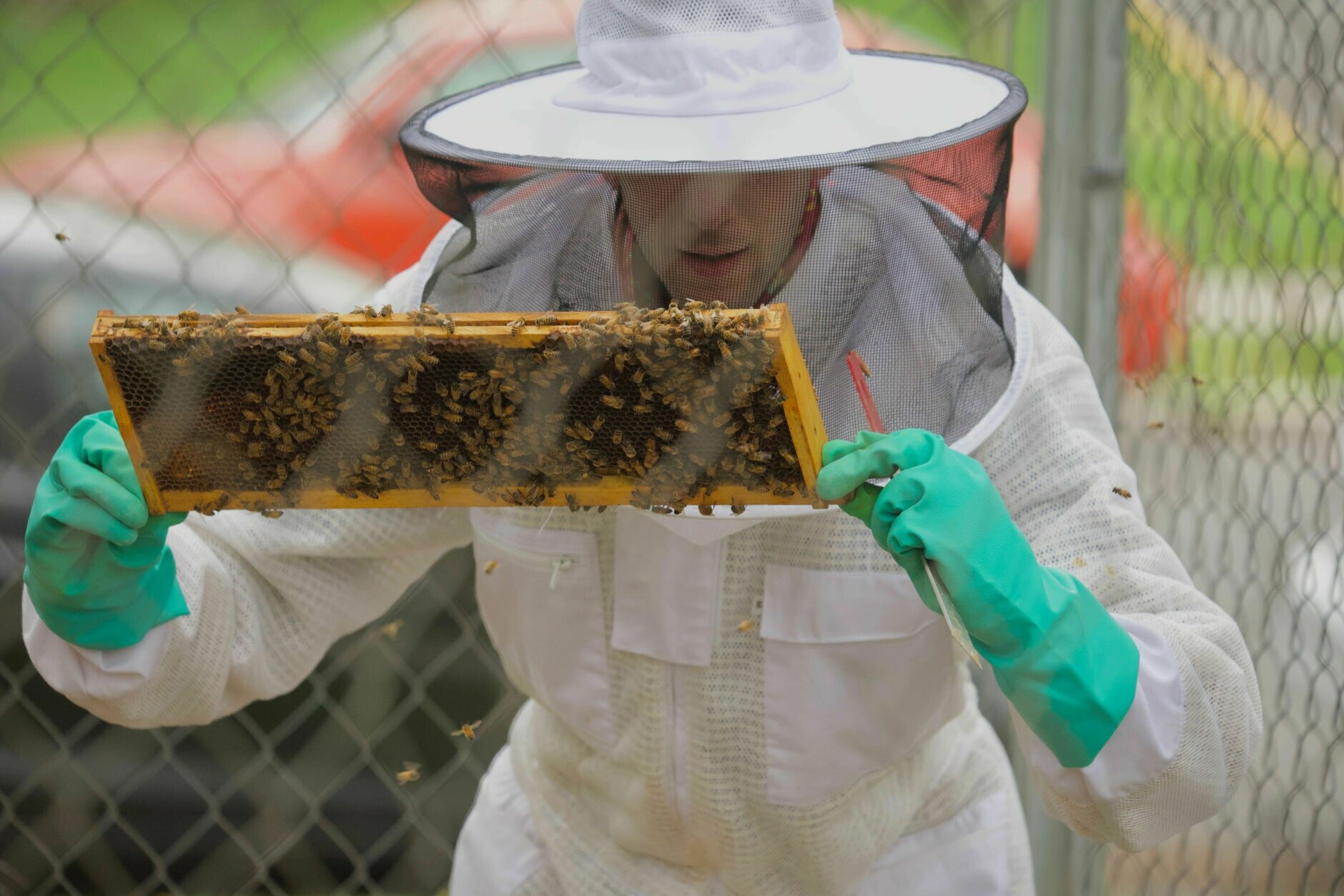
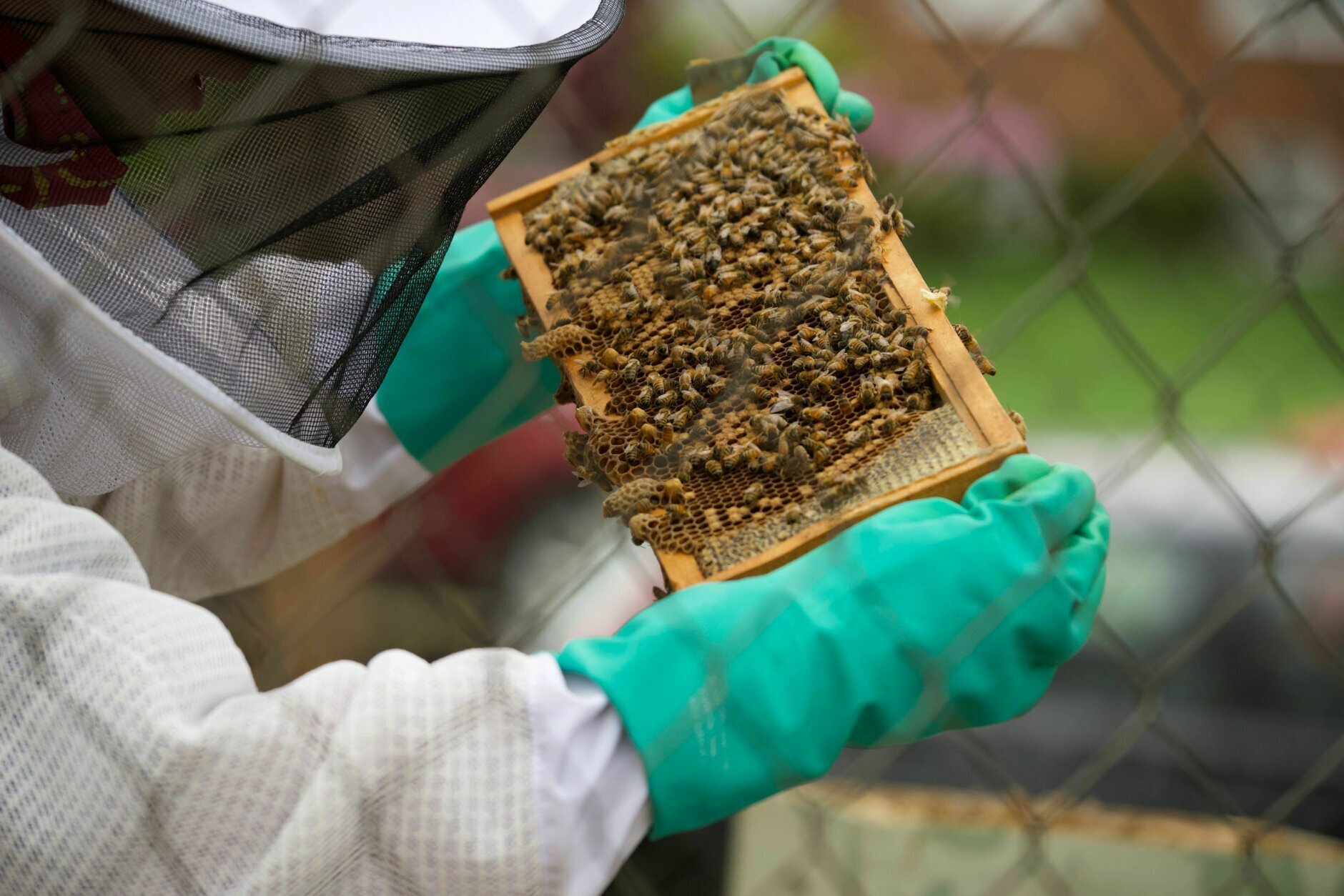
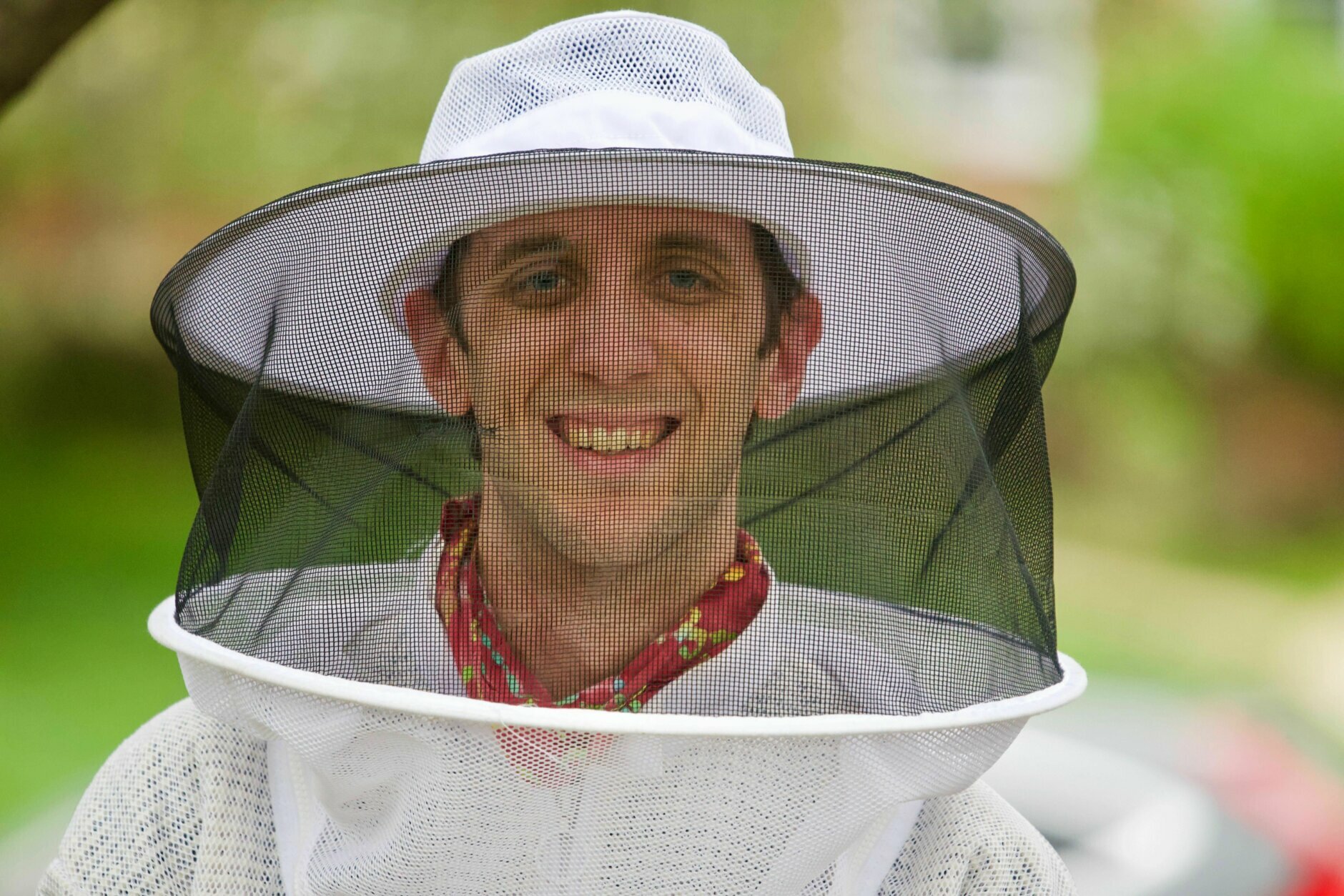
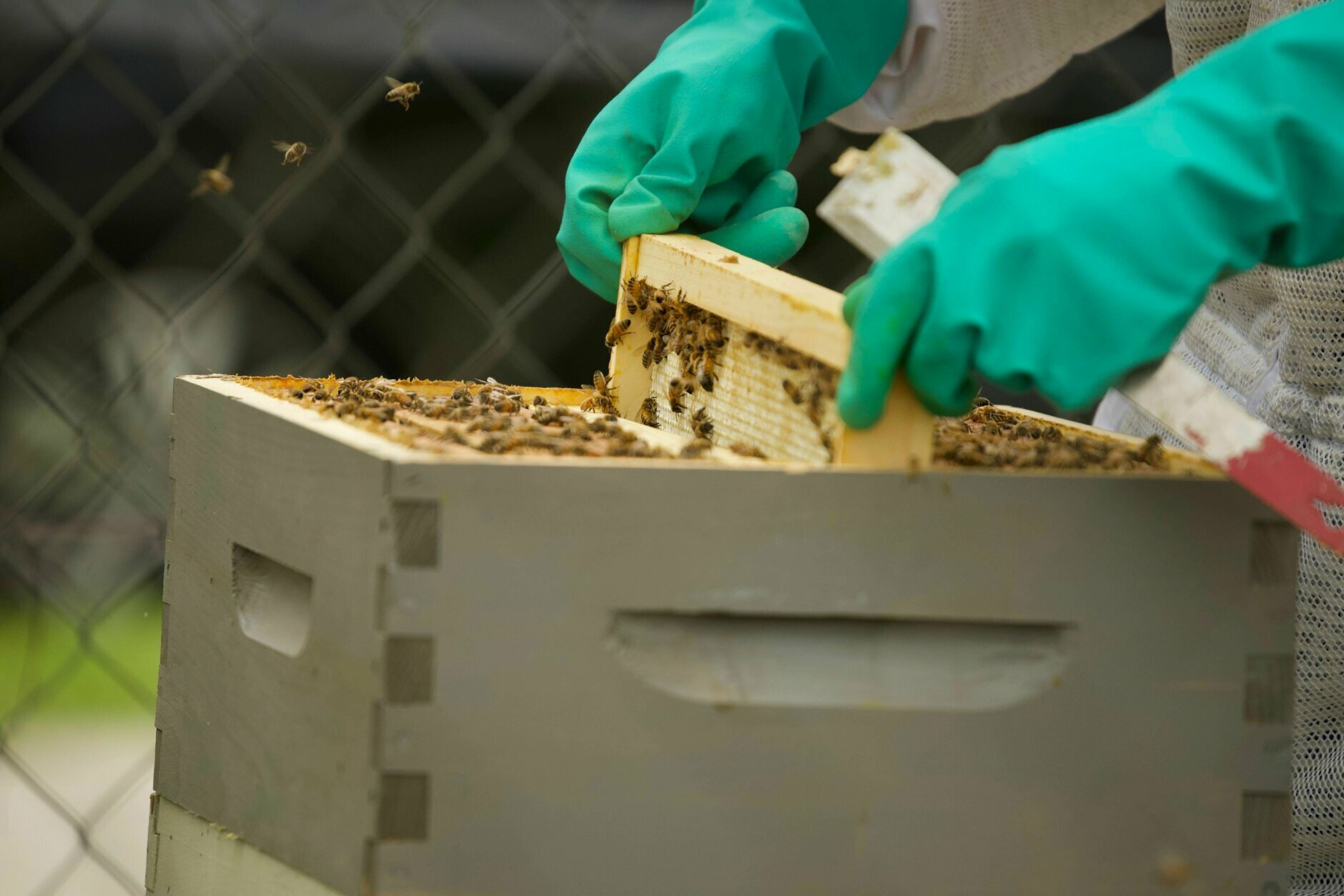
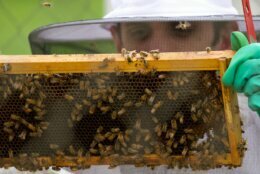
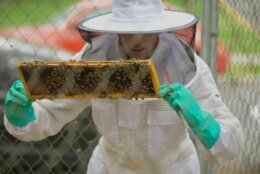
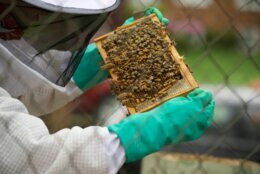
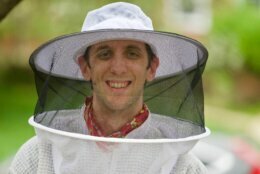
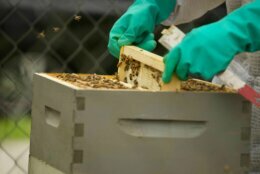
While stay-at-home orders have restricted or effectively curtailed most outdoor activities, D.C. resident beekeeper Bob Albright can rest assured the coronavirus crackdown won’t put a stop to his work: It’s been deemed essential.
“Bees are critical for community gardens, for flowers, for a lot of the things that we enjoy in D.C.,” including the cherry blossoms, said Tommy Wells, director of the District’s Department of Energy and the Environment.
Wells said there are about 125 certified beekeepers like Albright, and about 500 registered hives in the District of Columbia. The White House had one of those certified hives when former First Lady Michelle Obama established her famous Kitchen Garden on the White House grounds.
Albright and his wife Ann have had a plot in the Newark Street Community Garden for a few years.
“I got involved in beekeeping about one year ago after taking the intro to beekeeping course run by the D.C. Beekeepers’ Alliance.” Albright said. “My wife is the one who instigated it, and I sort of trailed along.”
Albright said it’s a change of pace from his day job as a software engineer.
“When you’ve got a few hundred bees sort of swarming around you, it’s a different set of challenges.”
Albright estimates has been stung about three times, despite being sure to wear the distinctive beekeeper’s suit, with its netting over the face every time he approaches the hive.
On the Sunday, while he was out tending to the hive, he remarked the bees were “chill,” buzzing calmly around him as he lifted the frames from each segment of the hive to check on the buzzing insects.
Other neighborhood beekeepers have told Albright that the bees in his hive are “very calm and nice.” But he has seen them get agitated on occasion.
“If they don’t have a queen around, or the weather is bad, or they’re low on food, they can get sort of cranky,” Albright said.
Some members of D.C.’s beekeeping community also belong to the Swarm Squad, a group of volunteers that will answer the call when a property owner finds bees swarming and does not know what to do.
According to the D.C. Beekeepers Alliance, swarms occur when a colony has outgrown their own hive. When that happens, they may mass on a fence, an exterior wall or even a parked car.
If you spot a swarm, you can contact squad members and they’ll come by, round up the swarm, and provide the homeless bees with a new hive to call their own.




